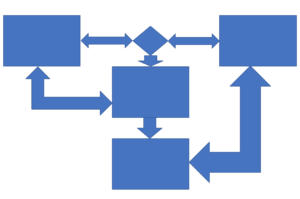‘Over the Edge of the Wild’: Lessons of discovery through developing transdisciplinary breadth in blended courses
 Universities are increasingly recognising the need to broaden the experience and understanding of their students beyond a single disciplinary approach, to produce graduates more capable of solving the problems of a multidisciplinary world. At the University of Tasmania, a ‘breadth unit’ program is underway with the dual purpose of evidencing student experience in graduate attributes and developing transdisciplinary approaches to interpreting the complex challenges (or ‘wicked problems’) of the real world. All breadth units are developed by lecturers working in teams across multiple faculties; all units must be capable of being studied off campus, and several have on-campus options (meeting the University’s requirement for blended learning). Breadth units are being built into student study plans, with most students required to study at least two as part of an undergraduate degree.
Universities are increasingly recognising the need to broaden the experience and understanding of their students beyond a single disciplinary approach, to produce graduates more capable of solving the problems of a multidisciplinary world. At the University of Tasmania, a ‘breadth unit’ program is underway with the dual purpose of evidencing student experience in graduate attributes and developing transdisciplinary approaches to interpreting the complex challenges (or ‘wicked problems’) of the real world. All breadth units are developed by lecturers working in teams across multiple faculties; all units must be capable of being studied off campus, and several have on-campus options (meeting the University’s requirement for blended learning). Breadth units are being built into student study plans, with most students required to study at least two as part of an undergraduate degree.
The initiative, commencing in 2013, uncovered challenges in administrative and academic systems, which may have been predictable, but were often surprisingly intractable. Administrative systems have primarily had to adapt to university study moving out of faculty silos. One-year-on reviews of units following their introduction capture the delivery experience (from lecturer and student perspectives) and provide vital feedback on learning design for quality improvement. Teaching teams now confront how best to sustain the blended approach as enrolment numbers increase.
This paper indicates some of the issues to be tackled and suggests indicators for the ‘success’ of this initiative.







